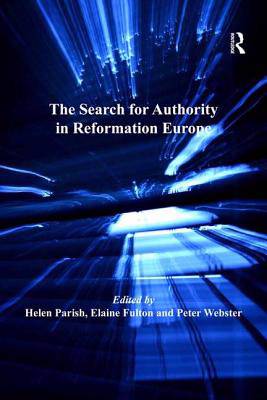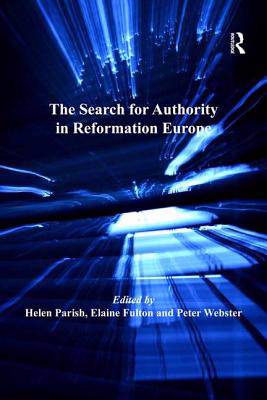
Bedankt voor het vertrouwen het afgelopen jaar! Om jou te bedanken bieden we GRATIS verzending (in België) aan op alles gedurende de hele maand januari.
- Afhalen na 1 uur in een winkel met voorraad
- In januari gratis thuislevering in België
- Ruim aanbod met 7 miljoen producten
Bedankt voor het vertrouwen het afgelopen jaar! Om jou te bedanken bieden we GRATIS verzending (in België) aan op alles gedurende de hele maand januari.
- Afhalen na 1 uur in een winkel met voorraad
- In januari gratis thuislevering in België
- Ruim aanbod met 7 miljoen producten
Zoeken
The Search for Authority in Reformation Europe. Edited by Helen Parish, Elaine Fulton with Peter Webster
Elaine Fulton
€ 305,45
+ 610 punten
Omschrijving
The 'problem of authority' was not an invention of the Protestant Reformation, but, as the essays contained in this volume demonstrate, its discussion, in ever greater complexity, was one of the ramifications (if not causes) of the deepening divisions within the Christian church in the sixteenth century. Any optimism that the principle of sola scriptura might provide a vehicle for unity and concord in the post-Reformation church was soon to be dented by a growing uncertainty and division, evident even in early evangelical writing and preaching. Representing a new approach to an important subject this volume of essays widens the understanding and interpretation of authority in the debates of the Reformation. The fruits of original and recent research, each essay builds with careful scholarship on solid historiographical foundations, ensuring that the content and ultimate conclusions do much to challenge long-standing assumptions about perceptions of authority in the aftermath of the Reformation. Rather than dealing with individual sources of authority in isolation, the volume examines the juxtapositions of and negotiations between elements of the authoritative synthesis, and thereby throws new light on the nature of authority in early-modern Europe as a whole. This volume is thus an ideal vehicle with which to bring high quality, new, and significant research into the public domain for the first time, whilst adding substantially to the existing corpus of Reformation scholarship.
Specificaties
Betrokkenen
- Auteur(s):
- Uitgeverij:
Inhoud
- Aantal bladzijden:
- 224
- Taal:
- Engels
- Reeks:
Eigenschappen
- Productcode (EAN):
- 9781409408543
- Verschijningsdatum:
- 10/01/2014
- Uitvoering:
- Hardcover
- Formaat:
- Genaaid
- Afmetingen:
- 156 mm x 234 mm
- Gewicht:
- 494 g

Alleen bij Standaard Boekhandel
+ 610 punten op je klantenkaart van Standaard Boekhandel
Beoordelingen
We publiceren alleen reviews die voldoen aan de voorwaarden voor reviews. Bekijk onze voorwaarden voor reviews.









